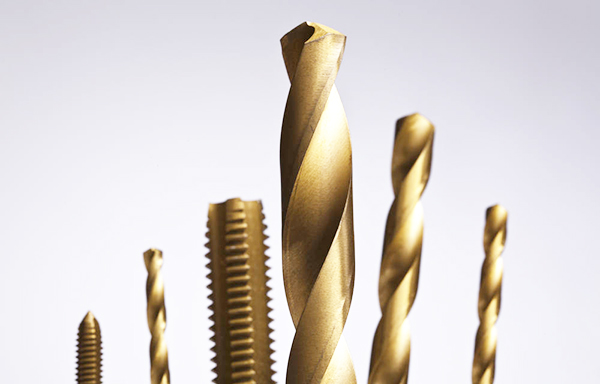Several products are utilized for or on drill bits, relying on the called for application. Several tough products, such as carbides, are far more breakable compared to steel, and also are much more based on damaging, specifically if the drill is not held at an extremely consistent angle to the workpiece; e.g., when hand-held.
Steels
High-speed steel (HSS) is a type of steel; HSS bits are tough as well as a lot more immune to warmth compared to high-carbon steel. They could be utilized to steel, wood, as well as a lot of various other products at greater cutting speeds compared to carbon-steel bits, as well as have actually greatly changed carbon steels.
Cobalt steel alloys are variants on high-speed steel which contain even more cobalt. They hold their solidity at a lot greater temperature levels and also are made use of to stainless steel and also various other difficult products. The primary negative aspect of cobalt steels is that they are extra breakable compared to conventional HSS.
Bits made from high-carbon steel are much more sturdy compared to low-carbon steel bits because of the buildings provided by setting as well as toughening up the product. If they are overheated (e.g., by frictional while drilling) they shed their mood, causing a soft cutting edge. These could be utilized on timber or steel.
Soft low-carbon steel bits are affordable, yet do not hold a side well and also need constant sharpening. They are utilized just for drilling timber; also dealing with woods instead of softwoods could visibly reduce their life-span. You can grind the blunt bit with our drill bit grinder.
Others
Poly crystalline diamond (PCD) is amongst the hardest of all device products and also is as a result very immune to use. It contains a layer of ruby fragments, commonly around 0.5 mm (0.020 in) thick, bound as a sintered mass to a tungsten-carbide assistance. Little bits are produced utilizing this product by either brazing little sectors to the of the to create the reducing or by sintering PCD right into a capillary in the tungsten-carbide “nib”. The nib could later on be brazed to a carbide shaft; it could after that be ground to intricate geometries that would certainly or else trigger braze failing in the smaller sized “sectors”. PCD are generally made use of in the auto, aerospace, and also various other sectors to drill rough alloys, carbon-fiber enhanced plastics, as well as various other unpleasant products, as well as in applications where equipment downtime to change or used is extremely expensive. It ought to be kept in mind that PCD is not made use of on ferrous steels because of excess wear arising from a response in between the carbon in the PCD and also the iron in the metal.
Tungsten carbide and also various other carbides are incredibly tough as well as could drill essentially all materials, while holding an edge much longer compared to various other . The product is pricey as well as a lot more weak compared to steels; subsequently they are mostly made use of for drill bit tips, tiny items of tough product repaired or brazed into the tip of made from much less difficult steel. Nonetheless, it is ending up being usual in work stores to make use of solid carbide bits. In really tiny dimensions it is hard to fit carbide tips; in some sectors, most especially PCB production, calling for numerous holes with sizes much less compared to 1 mm, solid carbide bits are utilized.










